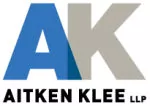In Mars Canada Inc. v Bemco Cash & Carry Inc., 2016 ONSC 7201, the Ontario Superior Court of Justice granted summary judgment and upheld settlement agreements that prohibit the grey marketing of Mars Canada's food products.
Grey marketing is the practice of buying genuine branded products abroad and selling them in competition with a local distributor of the foreign vendor. Bemco was purchasing legitimate Mars products in the United States and importing them for sale in Canada, which allowed it to sell at lower prices than Mars Canada's distributors. The Court noted that there is nothing inherently wrong with grey marketing, however, the law is unsettled as to whether a Canadian trademark holder can prevent third parties from selling products bearing the trademarks which are legitimate goods sourced from a foreign parent or affiliate of the Canadian trademark holder. This case focused on the application of prior settlement agreements and the Court found it unnecessary to resolve the legality of grey marketing.
Mars had sued Bemco over its grey marketing practices and the parties settled in 2006. Bemco later resumed its grey marketing of Mars' products and argued that it was not bound by the settlement agreement because the settlement agreement used the name Bemco Confectionary & Sales Ltd rather than Bemco Cash & Carry Inc.
The Court disagreed. The agreement referenced the court proceeding and file number to which Bemco Cash & Carry Inc. was the defendant. Bemco Cash & Carry Inc. obtained the Court order of the Federal Court dismissing the action to implement the settlement and had advised the court that the "parties" had a binding agreement. Contemporaneous correspondence between counsel left no doubt that settlement discussions were between the plaintiff and Bemco Cash & Carry Inc. The Court found it "perfectly clear" that the settlement was intended to bind Bemco Cash & Carry Inc. and ordered that the agreement be rectified to reflect this. Rectification is a discretionary, equitable remedy under which a court will correct a document that contains an error and thereby fails to reflect the mutual intentions of the parties.
Bemco also argued that the settlement was void because contracts that limit a person's freedom to trade are presumptively void at common law unless they meet a four-part test described in Tank Lining Corp. v. Dunlop Industrial Ltd., 1982 CanLII 2023 (ON CA):
Firstly, is the covenant under review in restraint of trade? ... Secondly, is the restraint one which is against public policy and, therefore, void? Not every restraint of trade is void. The limited exceptions usually involve a restraint coupled with mortgages or leases of real property as in this Court’s decision in Stephens v. Gulf Oil Canada Ltd. et al. (1975), 11 O.R. (2d) 129, 65 D.L.R. (3d) 193, 25 C.P.R. (2d) 64; see also Cheshire and Fifoot’s Law of Contract, 9th ed. (1976), p. 374. The restraint in this case does not fall within any of the recognized exceptions and is, therefore, prima facie void. Thirdly, can the restraint be justified as reasonable in the interests of the parties? Fourthly, can it also be justified as reasonable with reference to the interests of the public?
The Court held that the settlement was not prima facie void and that all four tests from Tank Lining were readily satisfied because the plaintiff's rights arose from settlement agreements, flowed from registered trademarks, and were being asserted against products that were otherwise illegal to import and sell in Canada.
First, the fact that the agreement is a settlement weighed heavily against it being prima facie void or at all contrary to public policy. The Court in Tank Lining held: "The courts also have always looked askance at parties who seek to escape the burden of contracts into which they have freely entered. Both practicality and morality require that solemn obligations be upheld and that parties be discouraged from repudiating them." By raising the issue of restraint of trade, the Defendants sought to unwind the very settlement to which they agreed and cause the grey marketing issue that they agreed to settle to be litigated.
Second, Mars' legitimate interest in protecting the distinctiveness of its trademarks for MARS, M&Ms, BOUNTY, MILKY WAY, SNICKERS, TWIX, UNCLE BEN'S and PEDIGREE and enforcing its statutory monopoly readily satisfied the first test in Tank Lining. The Court held that one cannot say that efforts to enforce trademarks are either prima facie void based on public policy or unreasonable in the public interest as such actions are explicitly authorized by Parliament.
Finally, the court noted that the defendants were prohibited from selling the grey marketed products by federal labelling and packaging law. Since the products were meant for the U.S., the labeling had no French, weights were not in metric and the required nutritional panel was missing, all of which violate express prohibitions in the Food and Drugs Act.
The Court granted summary judgment on the question of liability and declared that the resumed grey marketing constituted a breach of the settlement.
A copy of the judgment can be found here.
The content of this article is intended to provide a general guide to the subject matter. Specialist advice should be sought about your specific circumstances.

